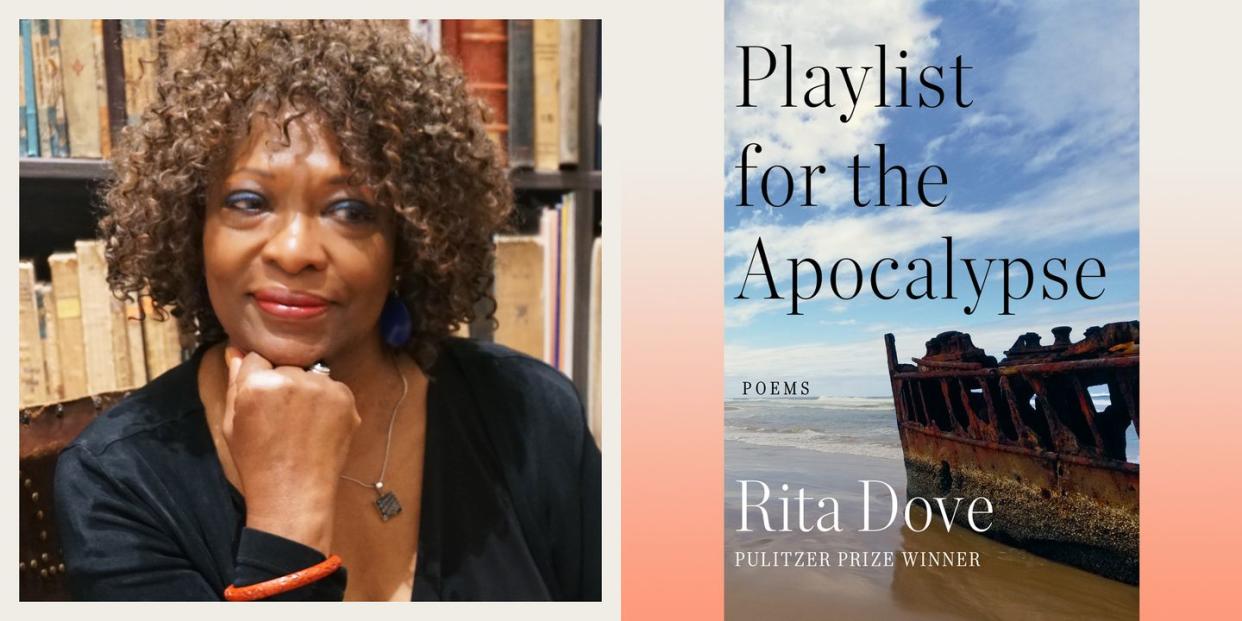Pulitzer Prize-Winning Poet Rita Dove on Why Poetry Is More "Urgent" Than Ever

- Oops!Something went wrong.Please try again later.
“Hearst Magazines and Verizon Media may earn commission or revenue on some items through the links below.”
As we approach the end of April—National Poetry Month—I continue to marvel at how Amanda Gorman reinvigorated the country’s interest in poetry by blowing away viewers with her recitation of “The Hill We Climb” at the Biden/Harris Inauguration. That poem, published as a single volume by Penguin on March 30 has already sold nearly 250,00 copies, making it one of the fastest-selling poetry books in recent memory.
One of those who paved the way for Amanda Gorman and so many other emerging poets is Rita Dove, who in 1993 became, at age 40, the youngest U.S. Poet Laureate and the first Black poet to hold that position. (Gwendolyn Brooks had been named Consultant in Poetry by the Library of Congress in 1985.) In 1986, her collection Thomas and Beulah was awarded the Pulitzer Prize. Dove, who also won an NAACP Image Award in 2017, has long used poetry as a form of activism and commentary. As fellow poet Brenda Shaughnessy once observed: “Dove is a master at transforming a public or historic element…unearthing the heartfelt, wildly original private thoughts such historic moments always contain.”
This August, Dove, who also teaches poetry at the University of Virginia, will publish a new collection, Playlist for the Apocalypse. In a conversation for Oprah Daily, I asked her why the form seems ever more urgent and relevant. She said this: “Before the pandemic, many of us used our homes essentially as stopovers on the way to and from work or going out. But now we have more time for contemplation. I also think we’re emerging from an era when language was being purposely subverted for political purposes—words were being taken over and made to mean something else, as in fake news. So we've been reminded of the power of words to oppress meaning or illuminate something in us. Now I think people have begun to yearn for a return to the use of language as a way of lifting us up.”
Dove also spoke to me about the young artists on the horizon she’s particularly excited about—she named Honorée Jeffers's The Age of Phillis as one of the new works she especially admires, along with recent collections by poets such as Natalie Diaz, Jericho Brown, and Victoria Chang, among others. And, of course, Amanda Gorman, about whom Dove said: “Wasn’t that fantastic? She mesmerized us all. She managed to make us feel like we were all of a piece, of one common humanity, and at the same time touch inside, so many of us, something very personal and interior. And she gave a performance. You have to perform an Inaugural Poem, which goes back to the roots of poetry when it was all oral and the poet was the griot, the person who told the tribe and the town, ‘This is our legacy. This is what we've done.’ And that's what she did. It's also so wonderful to see the excitement that has arisen because of her. All of these young people say, ‘Oh man, I didn't know a poet could do that. Okay, well, let me try this out.’”
How is it, I asked Dove, that a few simple words in the form of a poem can express a feeling we think is unique to us, can pierce our hearts and nourish our souls? “What a poet can do,” Dove said, “is to go into those areas where we feel very uncomfortable in terms of working out how we feel. And then we read a certain poem and we say, ‘Oh, someone else feels this way too.’ It’s like a tuning fork. The moment where you start to vibrate together--you and this person you don't even know but who has just read your soul--that moment of feeling no longer alone, knowing that what you are feeling is something someone else has felt, and that it will not overwhelm you. You are in alignment.”
"Is there a poem you would want to offer readers as they re-emerge from this Covid period," I asked Dove. "Yes," she said. And she sent me the glorious poem below, which is excerpted from her forthcoming collection. Pure joy.
"Dawn Revisited"
Imagine you wake up
with a second chance: The blue jay
hawks his pretty wares and the oak still stands, spreading
glorious shade. If you don't look back,
the future never happens.
How good to rise in sunlight,
in the prodigal smell of biscuits -
eggs and sausage on the grill.
The whole sky is yours
to write on, blown open
to a blank page. Come on,
shake a leg! You'll never know
who's down there, frying those eggs,
if you don't get up and see.
You Might Also Like

